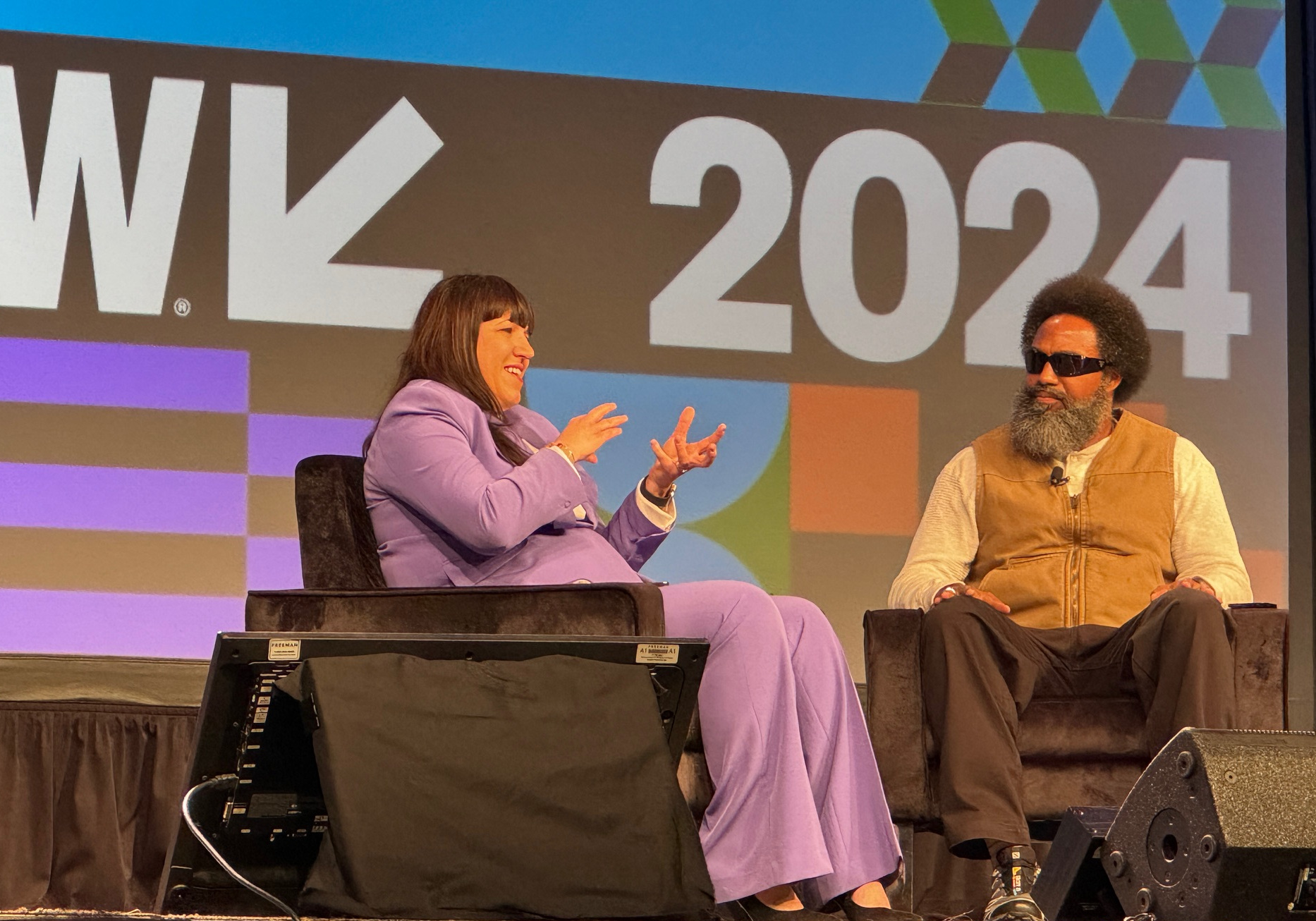Aside from being singers with unusual names, what do Engelbert Humperdinck, Billie Eilish and Jon Bon Jovi all have in common? They, along with more than 200 fellow music artists, banded together this month to warn against the dangers of AI. According to an open letter they all signed, “AI poses enormous threats to our ability to protect our privacy, our identities, our music and our livelihoods…This assault on human creativity must be stopped.” Their use of bold face emphasizes that this is not a matter to be trifled with.
It comes just a couple of weeks after SXSW in Austin devoted a session to the role and use of AI in music creation. Andreea Gleeson, CEO of TuneCore, was in conversation with Daouda Leonard, founder of CreateSafe, an AI software development studio for artists to create and manage their business.
Leonard explained how independent music artists can benefit. “There are a lot of emergent technologies and platforms where your ability to set your own price and engage will be how you are able to effectively monetise your music catalogue, which is the most important thing when you’re an artist.” Gleeson responded, saying “I feel like the most creative genres in music is coming from the independent sector because they’re not in the box: they are blending genres. Even though weren’t not in a physical record store anymore, this is an area where because the independent musicians are the most creative they’re often ahead of everyone else on how to package it.”
“That’s another space where AI can be a huge benefit,” Leonard chimed in. “You can work with different large language models (LLMs) to figure out how to tag your music differently, to market it and pitch it differently. What LLM’s really open up the door for the artist is like being a creative co-partner in terms of bouncing ideas off of it. It allows you to take the data you get from something like Spotify or ChartMetric and feed it into a LLM and get answers that have the benefit of this collective consciousness. It can sift through data and give you actionable insights like where you can be touring, and how much merch you should sell in a specific city.”
Gleeson said she has seen artists using AI in a collaborative way that “helps engage with their audiences. There is a particular person who is an artist in her own right but also is a songwriter who writes for a big girl band. The girl band didn’t want the song so she said I actually wrote this for another group, and that first group’s fans took to some of these AI communities of super fandom, and grabbed the voices of those particular artists, and were creating their own dream track of what would it have been if that song was actually done by that band! It creates superfandom engagement: the fans really want to co-create!”
Despite the opportunities, Gleeson was clear about the downside. “One hundred percent AI-generated music is definitely going to disrupt (and is disrupting) functional music.” She said, however, that music has to be good “and that’s not so easy to replicate without input from an artist. What I get so excited about is the marketing side. There are tools to help you make the music videos faster: you just dump all your videos and pictures and it creates it for you based on the music you put behind it. It greatly reduces your time being a video editor. It gets to the more important issue of how an artist can spend more time being an artist.”
Photo by C Cunningham: Gleeson and Leonard
To see the list of people in the artist and songwriting communities who signed the “Stop Devaluing Music” petition, go to this link:
https://artistrightsnow.medium.com/200-artists-urge-tech-platforms-stop-devaluing-music-559fb109bbac
